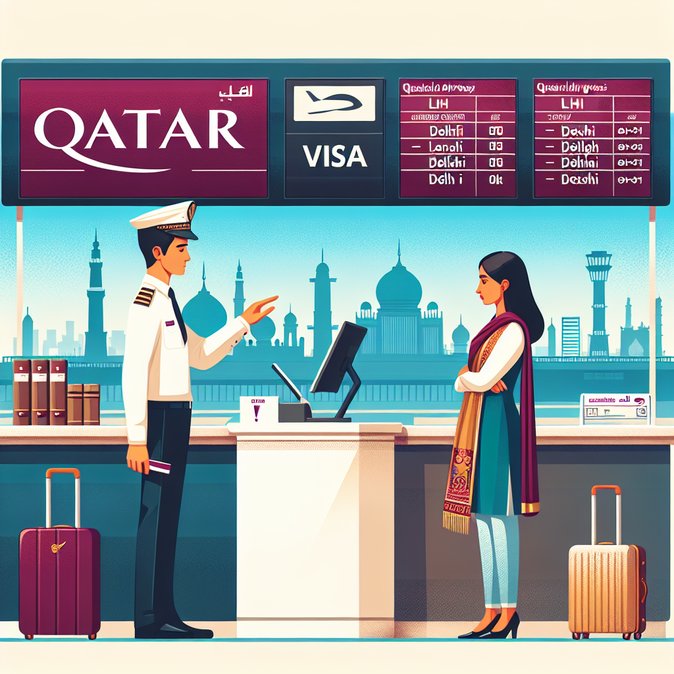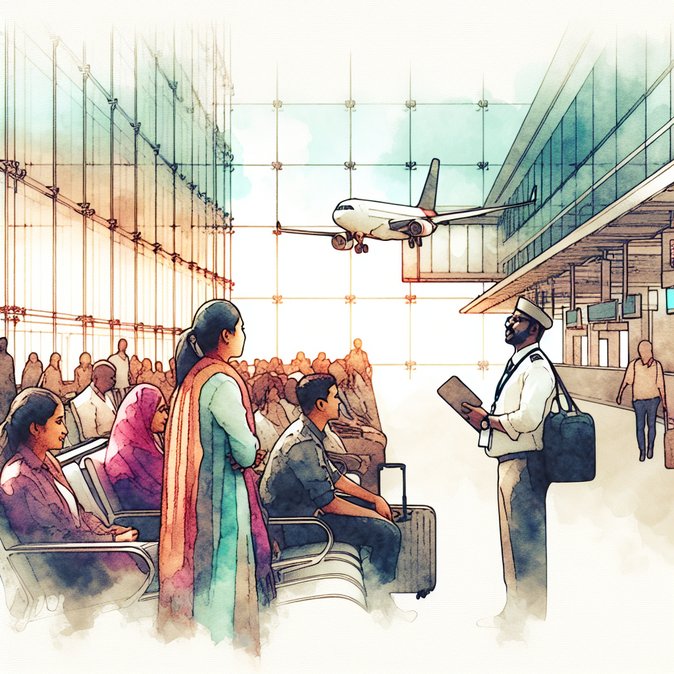
India’s Ministry of Home Affairs (MHA) rushed to defuse a diplomatic flap on 2 November after social-media posts alleged that Indian immigration officers at Delhi’s Indira Gandhi International Airport had discriminated against a Nepali traveller, Shambhavi Adhikari, en route to Berlin.
In an unusually detailed press note, the MHA explained that Adhikari arrived from Kathmandu on Air India and was merely transiting Delhi. At the boarding gate Qatar Airways staff refused to let her board because the remaining validity on her German visa was judged insufficient for Schengen entry requirements. Under International Civil Aviation Organisation (ICAO) rules, airlines—not border agencies—bear liability for improperly documented passengers; Qatar therefore flew Adhikari back to Kathmandu.
![India clarifies Nepali passenger incident: Airline decision, not immigration block]()
The ministry stressed that international transit passengers do not clear Indian immigration and that officials had “absolutely no role”. The statement added that Adhikari later travelled to Germany via an alternate route, underscoring that the episode was a routine carrier-level decision rather than state-level discrimination.
The clarification was quickly welcomed by Nepal’s embassy in New Delhi and helps avert friction at a time when India is trying to speed up cross-border rail connectivity and finalise the long-pending power-trade agreement with Kathmandu. For global-mobility managers, the incident is a reminder that airlines can—and do—deny boarding when visa validity is marginal. Employees transiting India should be advised to carry at least three months’ residual validity on onward visas and to build extra time into itineraries should re-routing become necessary.
More broadly, the episode highlights India’s attempt to project a traveller-friendly stance even as it tightens immigration controls on other fronts (for example, the October rollout of mandatory e-arrival cards). Multinationals moving personnel through Indian hubs should monitor carrier policies as closely as government regulations to avoid costly disruptions.
In an unusually detailed press note, the MHA explained that Adhikari arrived from Kathmandu on Air India and was merely transiting Delhi. At the boarding gate Qatar Airways staff refused to let her board because the remaining validity on her German visa was judged insufficient for Schengen entry requirements. Under International Civil Aviation Organisation (ICAO) rules, airlines—not border agencies—bear liability for improperly documented passengers; Qatar therefore flew Adhikari back to Kathmandu.

The ministry stressed that international transit passengers do not clear Indian immigration and that officials had “absolutely no role”. The statement added that Adhikari later travelled to Germany via an alternate route, underscoring that the episode was a routine carrier-level decision rather than state-level discrimination.
The clarification was quickly welcomed by Nepal’s embassy in New Delhi and helps avert friction at a time when India is trying to speed up cross-border rail connectivity and finalise the long-pending power-trade agreement with Kathmandu. For global-mobility managers, the incident is a reminder that airlines can—and do—deny boarding when visa validity is marginal. Employees transiting India should be advised to carry at least three months’ residual validity on onward visas and to build extra time into itineraries should re-routing become necessary.
More broadly, the episode highlights India’s attempt to project a traveller-friendly stance even as it tightens immigration controls on other fronts (for example, the October rollout of mandatory e-arrival cards). Multinationals moving personnel through Indian hubs should monitor carrier policies as closely as government regulations to avoid costly disruptions.










